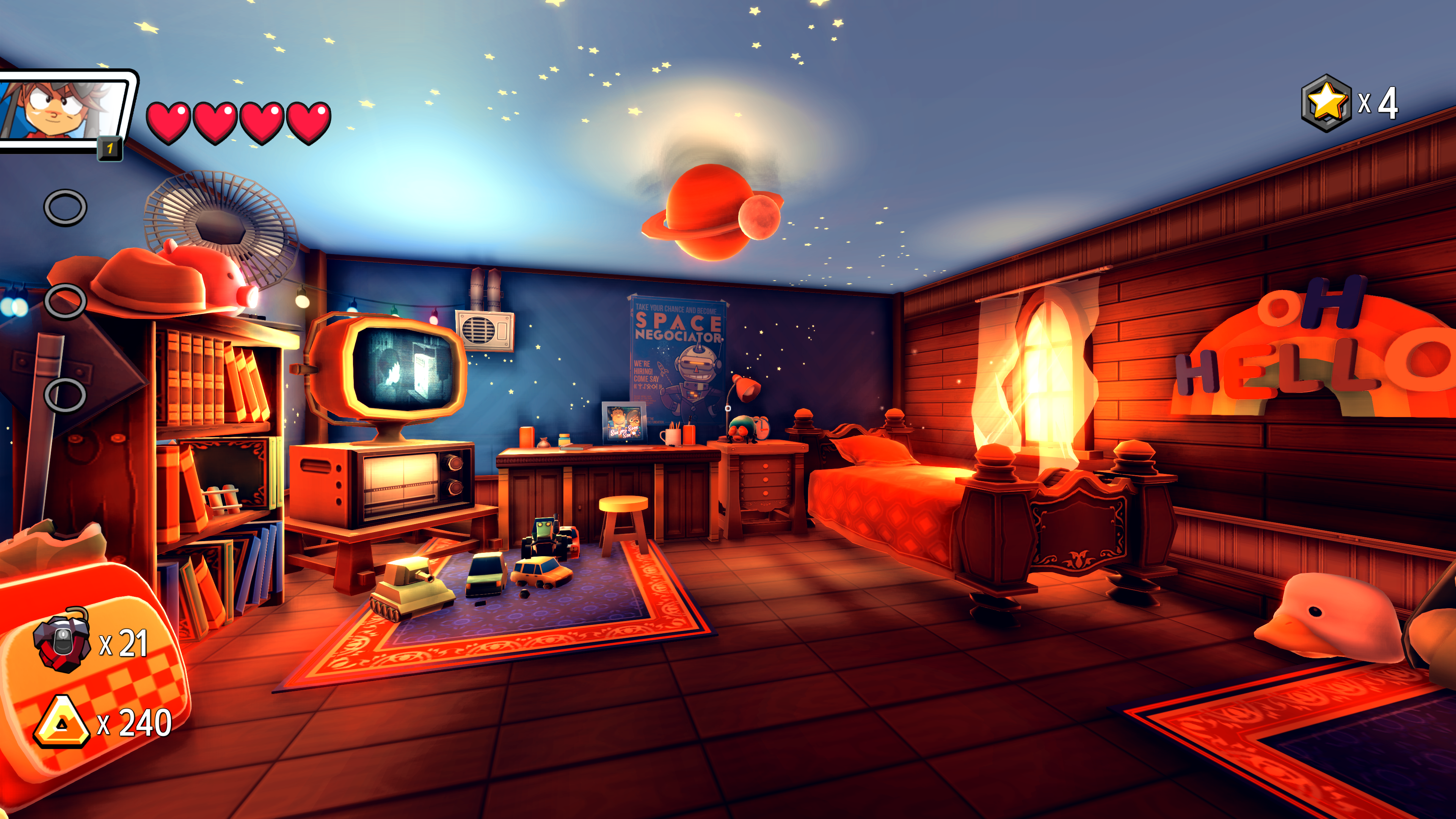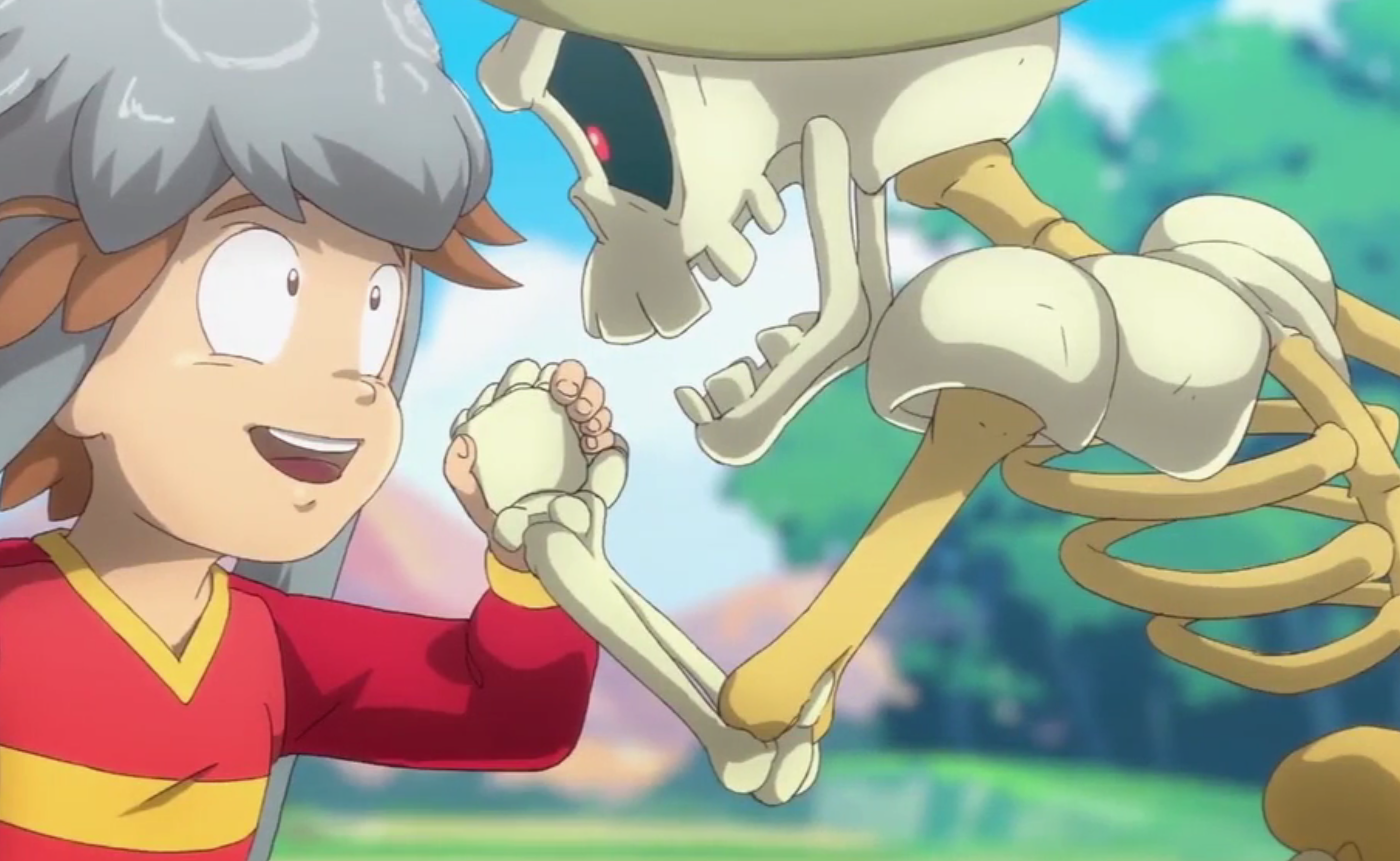Upon starting Away: Journey to the Unexpected, I learned something new about myself: there are few things I find more exciting than walking into something with absolutely zero expectations.
Apart from a trailer I vaguely recalled watching at least a year ago, I had no idea what Away was when I volunteered to review the game. I rewatched the trailer and concluded it must have been a Japanese title, based on it’s anime style opening, only to discover it was actually made by a French studio- Aurelien Regard Games. I also jumped to the conclusion that the gameplay would be similar to Terraria or Minecraft, only to discover Away is actually a roguelite, first-person shooter with choice-driven dialogue and platforming elements.
Yeah, I had to reread that line a few times too.

Already, Away: Journey to the Unexpected was living up to its name. It was certainly unexpected and I was intrigued. I booted up the game, savored every second of that animated opening, and quickly readied myself for the journey to follow.

![]() I believe the most important place to start when discussing Away is with the art. From the moment the protagonist rose from his slumber to find his bedroom completely illuminated by the hot, orange sun, I was taken aback by how vivid and comforting the game was. It’s honestly delightful and cannot be ignored. The environments glow, the character designs are quirky, and you can tell so much effort was put into making this game bright, vibrant, and relentlessly upbeat. On various places throughout the internet, the creators of the game have used the phrase “feel-good” to describe the type of game they were looking to create. This part of their vision was the most carried out, and it was largely through their stellar art team; they deserve a lot of credit for what they made.
I believe the most important place to start when discussing Away is with the art. From the moment the protagonist rose from his slumber to find his bedroom completely illuminated by the hot, orange sun, I was taken aback by how vivid and comforting the game was. It’s honestly delightful and cannot be ignored. The environments glow, the character designs are quirky, and you can tell so much effort was put into making this game bright, vibrant, and relentlessly upbeat. On various places throughout the internet, the creators of the game have used the phrase “feel-good” to describe the type of game they were looking to create. This part of their vision was the most carried out, and it was largely through their stellar art team; they deserve a lot of credit for what they made.
Now, while the art design of Away is decidedly triumphant, what lies beneath the game’s shiny exterior is a bit more complicated to process. Throughout my playthrough of Away, I repeatedly found myself amused, then quickly disappointed, by its gameplay. What resulted was an awkward shuffle. A limited recruitment system driven by dialogue choices that encourages the player to play each life differently? Brilliant. However, when the dialogue is extremely limited and the companions are wildly unbalanced in terms of ability (some can one shot kill anything while others essentially play the same as the main character) adoration quickly gives way to frustration.

In my eyes, fantastic characters can redeem quite a lot, and while Away marketed itself as a game revolving around forming friendships in order to progress, this idea did not come to life in the way I had hoped. While the characters themselves seem interesting enough, they are never given the time or opportunity to be anything more than a few lines of dialogue. The only thing that serves to make your companions more than brief encounters is the individual abilities they possess, and the clever choice to change how you view the world from character to character. While our protagonist sees clearly this vibrant, wacky world, his companions view the world quite differently. For example, when we play as the manager-turned-cronenberg-monster, we see the world through a crimson lens; when we switch to Woody, the mutated tree stump, the environment shifts to grainy shades of brown.
So, if the aforementioned friendship aspect of the game is not at the forefront, what is? Certainly not exploration. Each of the five or so areas you can roam around in contains precisely the following: three small monster caves (which are randomly cycled through from a pool of perhaps 20 level designs), three companions, a merchant, a dungeon, a handful of gold, and a friendship cube enabling you to pick up a companion. If this game were not a roguelite, and thus did not rely on the player dying and restarting the game repeatedly in order to level up and gain new abilities, the emptiness and repetition of the world would not be made so apparent. However, it becomes very difficult to fight the lingering sense redundancy.

Ultimately what’s left is combat far too unpolished to keep Away afloat. The game is not especially difficult, as enemies lack distinctive movesets and any sort of intuitive intelligence. The real obstacle is how poorly your character handles. Regardless of the character, precisely aiming ranged attacks is more difficult than it should be, and the melee feels a bit uncalibrated. In Away, using your weapons feels like playing Minecraft on a bad server- you find yourself making contact when enemies seem too far off, and missing when they seem within range. Furthermore, the game lacks important instructions- for example, I was several hours in when I discovered your character had a ranged attack (fireworks) and how to use it. While the game is initially a bit challenging in some spots, upgrades, selecting the useful companions, and mastering the learning curve quickly makes the game incredibly easy. Also, hey, do you want a game-breaking tip that makes it even easier? If you switch to a different companion before a special ability animation is complete, your companion does not lose energy. You can use this tactic with Lightheart for unlimited health.

Lastly, I want to briefly touch on the story, which, quite unfortunately, seems to be what the developers did as well. While Away might be unexpected in some ways, that surely cannot be applied to the tale it tells. Away essentially recounts two cliched stories- a boy seeking out his parents, and an evil corporation corrupting nature. The entire is tale chronicled in the diary of the protagonist where it is boiled down to ten small plot points. Ultimately it’s cute enough, but the lack of a compelling narrative, paired with weak characters, makes it feel like this game really doesn’t have much to say.
Through name alone, you can assume Aurelien Regard Games had grand plans for Away: Journey to the Unexpected. As you play the game, you can feel it. You can see the potential and ideas; you can understand what the intention was and what the game could have been. However, it is this ambition which results in the games greatest downfall – too many ideas, too little space for any one of them to transform into something truly great. I believe Away is worth playing, especially if you are someone who is intimidated by roguelikes but wants to give the genre a try. I also believe Aurelien Regard Games created a good foundation here, and if they were to refocus and create a sequel that was both larger and more carefully concentrated, they could have something fantastic on their hands.
This game was reviewed on PC with a copy provided by the developer.






